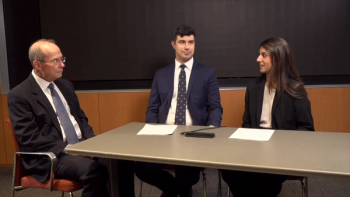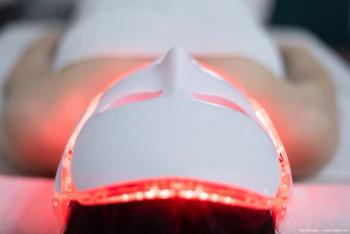
Keys to manual small-incision cataract surgery techniques
Factors that positively affect the performance of residents during surgery are using a simulator preoperatively and maintaining a positive outlook.
The number of surgeries performed during residency training varies from institute to institute, and this can raise the question: How many surgeries are adequate to ensure patient safety and good outcomes after
The complication rates associated with
Rajesh Vedachalam, MBBS, highlighted the results obtained using the ICO-OSCAR in an analysis of the learning curve. Dr. Vedachalam, from the Department of Cornea, Aravind Eye Care, Puducherry, India, presented the study findings on behalf of Aravind Haripriya, MBBS.
Related:
Observation is key
Dr. Vedachalam pointed out that more manual small-incision cataract surgeries (MSICS) are performed in India during residency training compared with phacoemulsification, and are associated with lower complications rates (1.75% versus 8.2%) among novice surgeons.
Dr. Haripriya and colleagues conducted a prospective cohort study in which they sought to predict the average number of surgeries required for a resident to gain competency in MSICS using ICO-OSCAR.
All residents who started residency training at the Aravind Eye Hospital were included. The first 15 procedures and every tenth case thereafter were assessed using ICO-OSCAR, Dr. Vedachalam explained.
The ICO-OSCAR scoring tool contains 20 objectives, and scores each surgical step. The total score is then evaluated.
In this study, all surgical complications were documented during the step at which it occurred. A form was completed regarding various factors that may have affected the surgical outcome to determine their effect on the learning curve. The investigators compared the preoperative and postoperative visual acuities for significant differences, Dr. Vedachalam explained.
Related:
Twenty residents (mean age, 27.8 years) were included in the study, and two were excluded for excessive absences. Of the 18 remaining (11 women, 7 men), 15 had previous surgical experience with other surgeries.
A total of 2,021 surgeries were performed between September 2016 and May 2018. Surgical complications developed in 62 (3.06%) procedures, with posterior chamber opacification and zonulysis the most common complications.
“This complication rate is much lower than in other studies,” Dr. Vedachalam pointed out.
Twenty-eight (1.38%) patients underwent second surgeries. The mean best-corrected visual acuity at follow-up was 20/20.
Related:
Positive factors in the surgical outcome
Two factors were found to have a positive impact on the surgical outcome: watching videos of MSICS or observing surgeons perform before operating and the confidence level or mood of the surgeon.
Other influential factors included wet lab practice performed on a simulator and the laterality of the patient’s operated eye.
When the relationship between the ICO-OSCAR score and potential predictive factors was analysis, the number of surgeries performed and simulator practice both had significantly higher scores (p < 0.001 for both comparisons).
Related:
Other positive factors were previous general surgical experience (p = 0.002) and female gender (p = 0.04). Eye laterality had no role in improving the OSCAR score, a finding that was in contrast to other studies.
“We also found that surgeons who performed micro hand movement activities, such as those during piano playing or eating with chop sticks, did not perform better during surgery,” Dr. Vedachalam said.
The research indicated 119 surgeries were needed to reach competency to achieve a competency score of 80. For a score of 90, 172 surgeries were required.
Other such studies have assessed the numbers of surgeries required as indicators of experience and the complication rates, and the reoperation rate, but did not assess surgical competency of the surgeons or the learning curve, Dr. Vedachalam noted.
Related:
“We believe that the measure of competency as measured by the objective ICO-OSCAR in each surgical step and the surgeons’ ability to perform surgeries independently are important and that assessment of competency and learning curve is a strength of our study,” he said.
Dr. Vedachalam pointed out that using the ICO-OSCAR tool, a minimum of 119 MSCIS surgeries is recommended to achieve competence with a score of 80 and above.
Conclusion
“The positive factors predictive of higher ICO-OSCAR scores are female gender and previous general surgical experience,” he concluded. “Simulator practice before surgical training is correlated with better scores. Residents find that observing surgeries and being in the right frame of mind are useful for better surgical performance.”
Rajesh Vedachalam, MBBS
E: [email protected]
This article is based on Dr. Vedachalam's presentation at the American Academy of Ophthalmology 2019 annual meeting. Dr. Vedachalam has no financial interest in any aspect of this report.
Newsletter
Don’t miss out—get Ophthalmology Times updates on the latest clinical advancements and expert interviews, straight to your inbox.





























